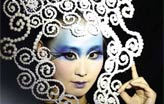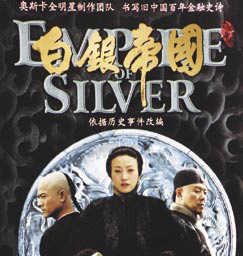Top Stories
Movie gives director a lesson in family history
Updated: 2011-06-20 10:11
By Kelly Chung Dawson (China Daily)
|
|
NEW YORK - Researching and making the epic film Empire of Silver, which depicts a high-stakes tale of power and romance among the renowned Shanxi merchants in the late 19th century, was an eye-opening experience for first-time director Christina Yao in more ways than one.
Loosely based on the best-selling trilogy Valley of Silver by novelist Cheng Yi, the film taught Yao not only about the rich history of the influential merchant class but also of her father, whose upbringing in a wealthy Shanxi merchant family shaped the life he led in both politics and in his personal life.
"Growing up, I didn't fully really realize what it meant to be a Shanxi merchant," she said. "They were incredibly powerful. And through researching this book, I realized more about my father. He and his father and grandfather were all monogamous, even though many of their peers had second wives. I thought it was their virtue, but I realized that the Shanxi merchants were a truly unique culture that in all of China's thousands of years, were the only group that demanded monogamy."
Empire of Silver, released in China in 2009, opened in 17 theaters across five cities in the United States in early June. The film shows how the Shanxi merchants were at one point part of a powerful mercantile triumvirate that included the Venetian and Jewish merchants. Their wealth and power afforded them a jet-setting lifestyle, which Yao tried to capture by filming in four provinces, 13 cities and 46 sets.
Yao, who was born in Taiwan, formerly served as director of the American Conservatory Theater in San Francisco. She wrote, produced and directed the film. She believes that the film's core message champions the importance of ethics, a particularly important theme in troubled economic times, she said. The characters at the center of Empire of Silver lived in similarly difficult times, facing various threats to their standing, including the Boxer Rebellion and revolutionary forces.
While the strong personal ethics of the group were a part of their cultural fabric, their tradition of monogamy also ensured that the power within each Shanxi family really sat at home with the wife, who closely managed both the household and its finances with a tight grip.
"What these people had done was that they set up a very good system; they somehow curtailed human weakness into a flourishing business structure that encouraged good behavior," she said.
But that tight fabric is pulled apart by a series of tragedies within the family, forcing Lord Kang (Zhang Tielin) to consider his least favorite son, the more ethical and honest Third Master (Chinese singer and actor Aaron Kwok) as the heir to his business. Complicating matters is Third Master's love for his stepmother (actress Hao Lei).
"When I was writing the movie, I thought through the classic family stories, and I realized that Hamlet, King Lear,
even the Godfather - even though they're not always defined this way, they are ultimately secession stories," Yao said. "Within any power structure, the torch passing is always the crisis point and therefore the dramatic point. I decided that this would be a secession story, too."
The movie has done relatively well with US audiences, said Gary Springer, who handles public relations for the film.
"It's a beautiful film, with a first-time director who makes a $10 million budget look like a $100 million budget. It seems to be working," he said. "I think that there's growing awareness and access with Chinese films because more and more Chinese movies are being made."
It's common for foreign films to take several years to reach American audiences, Yao said. So far, audiences have mostly been of Asian-merican descent, she said.
"We have been trying to break out of the Chinese community," she said. "Our main focus for this release was to hope that the world outside the Chinese community would learn about it and watch it. We have seen some non-Chinese people coming in, but not the large numbers we'd hoped for."
Yao believes that the theme in Empire of Silver of doing the right thing under great pressure will resonate with non-Asian audiences,.
"I think it all boils down to men's relationship with money, with other people's and your own," she said. The most important thing is that every man has to live with himself. If you think that having enough zeros on your bank account will make you happy, you've already lost yourself. Being a man is more important than being a businessman."
Yao does not plan to undertake such a large project again. Her next film will be a comedy and she does not plan to take on all three roles in writing, producing and directing again.
"We're hoping that the next movie can be done, but a lot of elements have to come together," she said. "Making a movie is not just money and personal effort; it's the lives of many people fighting by your side to get something worthwhile done."
China Daily

Specials

My China story
Foreign readers are invited to share your China stories.

Pret-a-design
Though Elisabeth Koch did not attend the Aprilweddingof Prince William and Kate Middleton in London, her tailor-made hats might have.

Mom’s the word
Italian expat struggles with learning English and experiences the joys of motherhood again.
